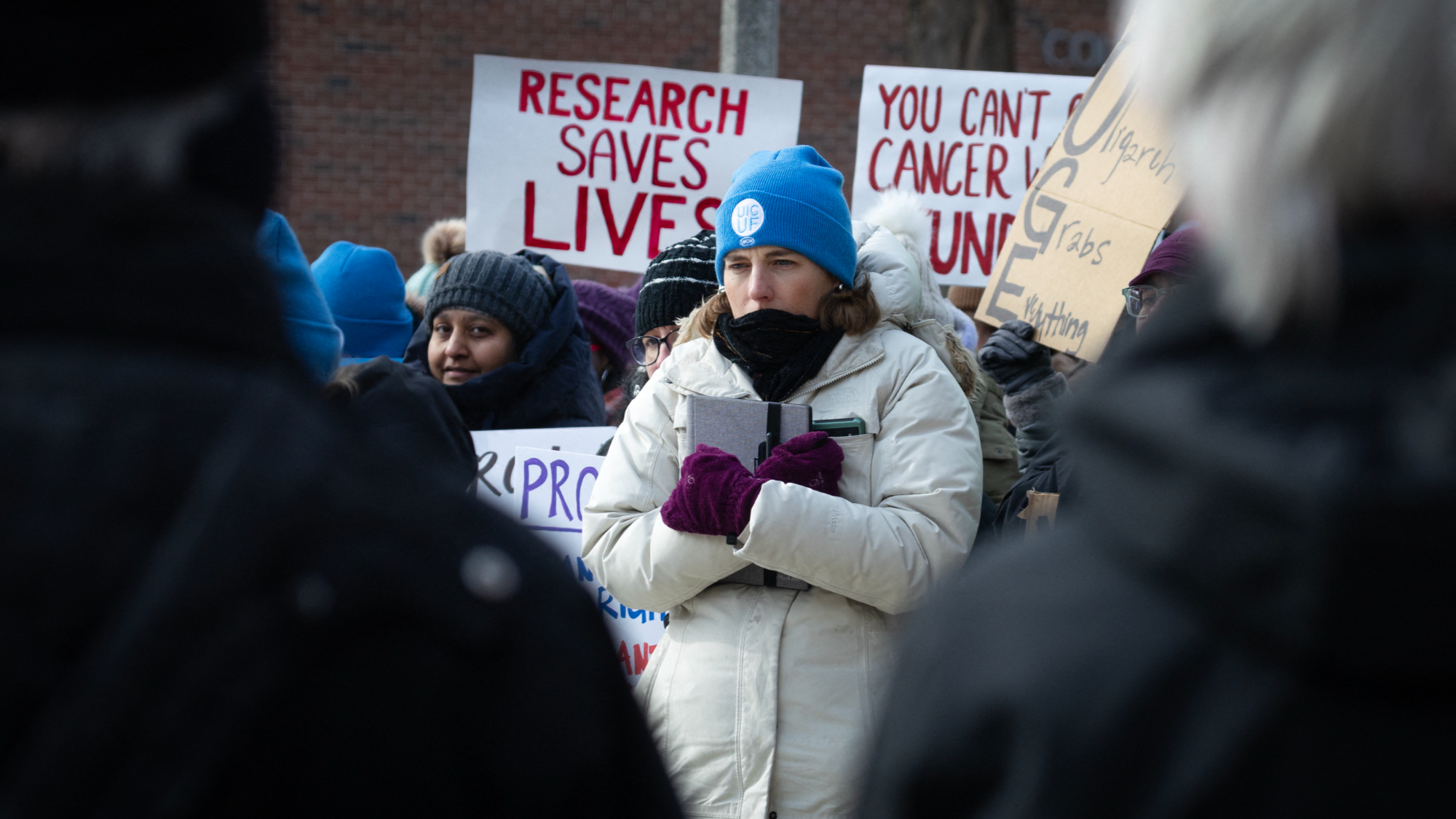
SACRAMENTO, United States - Major research universities and hospitals across the United States are bracing for devastating funding cuts under new Trump administration policies that threaten to disrupt critical medical research and scientific progress.
On Wednesday, thousands of academics, researchers and university staff across the country protested drastic federal cuts to science funding and layoffs of early-career government scientists.
A coalition of academic unions coordinated the protest.
READ MORE: US scientists protest against funding cuts
"The actions across the country on 2/19 are just the beginning of the fight," wrote Higher Education Labor United, a national organization founded in 2021 to unite workers throughout US higher education, on its website.
The University of California, San Francisco, which received $793 million in National Institutes of Health (NIH) grants in 2024, could lose about $121 million under a new policy that caps indirect research costs, according to a New York Times analysis of NIH grant data.
Other California educational institutions would also be significantly affected. The University of California, Los Angeles, and the University of California, San Diego, each received more than $1.7 billion in research funding in 2023, according to the Chronicle of Higher Education, placing them among the top research spenders nationally.
In Washington state, the University of Washington in Seattle, whose research expenditures totaled $1.7 billion in 2023, could see $86 million stripped from its $542 million NIH funding portfolio.
Several faculty members at Arizona State University may face furloughs after federal agencies indicated plans to discontinue funding certain university projects, a university spokesperson confirmed to E&E News. The university has advised researchers to censor proposals to avoid terms related to diversity and climate science.
Meanwhile, at the University of Colorado Boulder, administrators initially advised faculty to "interpret DEI (diversity, equity and inclusion) and DEIA (diversity, equity, inclusion and accessibility) broadly" when reviewing research in light of President Trump's executive orders, according to documentation reviewed by E&E News. The university later updated its guidance, advising researchers to proceed with their work as usual pending court decisions.
Under the new policy, money allocated for facilities, equipment, and staffing will be capped at 15 percent of a grant's value. According to the Chronicle of Higher Education, institutions currently receive an average of 27 to 28 percent, with some receiving over 50 percent.
"The uncertainty creates huge disruptions," said Arati Prabhakar, former director of the White House Office of Science and Technology Policy under the Biden administration. In an interview with NBC News, she explained that for research involving clinical trials, especially those offering hope to patients with serious diseases, it is "unethical to stop clinical trials and not be able to complete that kind of work."
University leaders caution that they cannot simply shift funds from other sources to cover these gaps.
"There is no scenario in which they simply move money from some hidden pot to cover this. Those hidden pots don't exist," said Ted Mitchell, president of the American Council on Education, as quoted in the Chronicle of Higher Education.
Critics warn the policy may drive leading biomedical researchers to relocate overseas.
The private sector may also feel the impact. With reduced public funding for early-stage research, startups and biotech firms could struggle to secure initial investment, slowing the development of new drugs and medical devices and potentially harming public health and the economy.
"Any delay or inhibition of our research is devastating to patients, families and scientists who have dedicated their careers to finding cures," said neuroscientist Rick Huganir of Johns Hopkins University, as reported by NBC News. His groundbreaking work on a gene linked to intellectual disabilities now faces an uncertain future.
READ MORE: Judge orders US to restore funds for foreign aid programs
The funding crisis coincides with administration orders for widespread layoffs of probationary federal scientists and eliminating federal programs related to diversity, climate change and environmental justice. Politico reports that the National Science Foundation has been asked to cut staff by 25 to 50 percent in the next two months.
A federal judge has temporarily blocked the NIH cuts after 22 state attorneys general filed a lawsuit. University groups have also sued to halt the policy.
University officials argue that modern scientific research requires sophisticated facilities, robust safety systems and substantial support for staff funding typically covered by overhead. They warn that America's standing as a global leader in medical innovation could be irreparably damaged without these resources.


